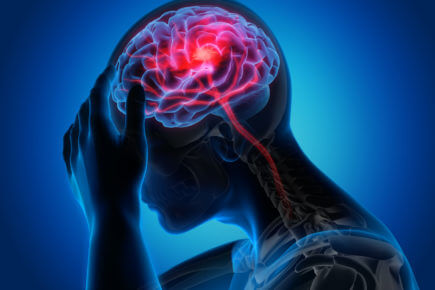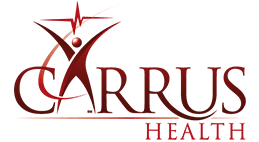 Strokes are one of the most dreaded medical conditions. They are not only a major cause of severe disability, but also the fifth leading cause of death in the United States, according to the Centers for Disease Control and Prevention (CDC).
Strokes are one of the most dreaded medical conditions. They are not only a major cause of severe disability, but also the fifth leading cause of death in the United States, according to the Centers for Disease Control and Prevention (CDC).
That’s why it’s important to know the early warning signs of a stroke, particularly if you are male, over the age of 55, African American, or diagnosed with diabetes or heart disease. Any or all of these factors will put you at a higher risk, but anyone can have a stroke.
If you or someone else is experiencing any of the symptoms mentioned below, don’t take any chances – call 911 immediately.
What Are the Symptoms?
At the first warning signs of a stroke – whether you or someone else is experiencing the symptoms – it is imperative to get treatment quickly, since every second without oxygen damages the brain. These telltale symptoms include:
- Sudden numbness or weakness on one side of the body, either in the face, arm, or leg.
- Sudden confusion or difficulty understanding things that one normally has no problem managing.
- A sudden loss of vision or trouble seeing in one or both eyes.
- Unexpected dizziness, loss of balance, or poor coordination, making it difficult to walk or grip.
- A sudden, severe headache for no apparent reason.
The reason a stroke may affect only one side of the body is because the brain controls each side from the opposite hemisphere. The left side of your body is controlled by the right side of your brain, and vice versa.
FAST Signs of a Stroke
The best way to identify the signs of a stroke is to acquaint yourself with FAST, which is an acronym for:
- Face drooping. One side of the face suddenly becomes numb or sags. If you try to smile, your mouth looks uneven.
- Arm weakness. One of your arms will feel weak or numb. If you try to raise both of your arms, the affected arm will drift downward.
- Speech difficulty. You may struggle expressing yourself, such as by repeating a phrase or slurring your speech.
- Time to call for help. Even if the stroke symptoms subside, get yourself to the nearest hospital. Also, make a note of when the symptoms first started. That information may be crucial in emergency treatment.
What Causes a Stroke?
Strokes occur when a blood vessel that delivers oxygen to the brain is blocked or bursts. If it is blocked, it is called an ischemic stroke; if it bursts, it is known as a hemorrhagic stroke.
In either case, a lack of oxygen destroys the brain cells that the particular blood vessel serves. This affects the part of your body that those brain cells controlled.
A brief stroke, or mini-stroke, is a transient ischemic attack (TIA) – and it usually does not cause lasting damage. The person usually thinks they simply “tripped” or “fell,” and it typically occurs in older people. Nevertheless, a mini-stroke is often a warning sign of a major stroke yet to come.
Trusted Doctors in Texoma
Here at Carrus Health, we’re here to help you or a loved one prevent stroke or to manage your life if you have had one. If you have had symptoms of stroke or a TIA, contact us so we can work with you to help you stave off any further effects.
If you have any questions or would like to schedule an appointment, contact us today at (903) 870-2600 or fill out our online contact form now. We look forward to serving you.
